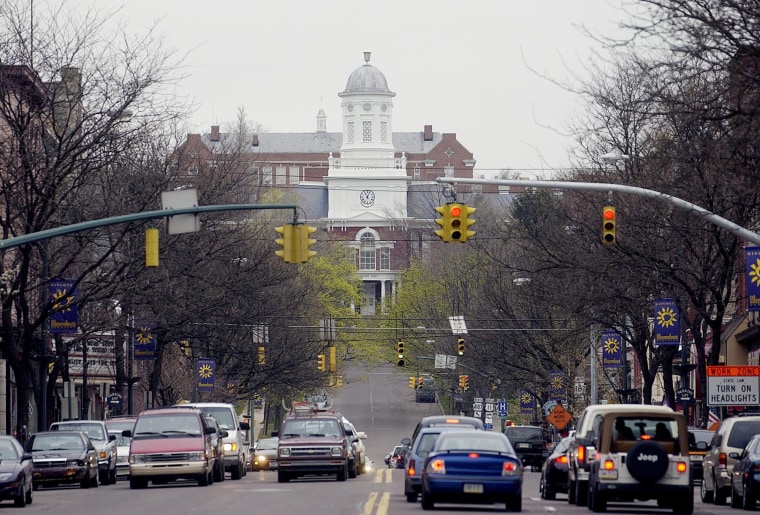Classes for up to 105,000 college students were set for disruption Wednesday after Pennsylvania's first faculty strike began in the early hours.
The faculty union called the strike after the most recent round of negotiations over pay and healthcare broke down after five days.
The union, the Association of Pennsylvania State College and University Faculties, represents 5,500 faculty members across 14 state universities. Strikers headed to the picket lines at 5 a.m. ET.
"At 11:35 p.m. we made a last attempt to negotiate through back channels," APSCUF President Dr. Kenneth M. Mash said in a statement. "We are headed to the picket lines, but even on the picket lines, our phones will be on, should the State System decide it doesn’t want to abandon its students."
Earlier, APSCUF Vice President said the union "did everything possibly could to avoid a strike."
The union had been negotiating with the Pennsylvania State System of Higher Education since September, with the most recent rounds of talks starting Friday.
The State System said that in "difficult times for our universities" faculty should pay for a bigger share of their own healthcare "like everyone else." It said that in an effort to reach an agreement it has withdrawn more than two dozen proposed changes on faculty contracts.
"We don’t understand how APSCUF can argue that faculty members should be entitled to a better healthcare plan than our other employees," said State System spokesman Kenn Marshall.
The strike is the first in the system's 34-year history.
Before talks broke down, Pennsylvania Gov. Tom Wolf said industrial action "could drive a loss of students, which would further exacerbate an already precarious financial situation for the state system."
The State System said that universities would remain open and functional "to the greatest extent possible."
